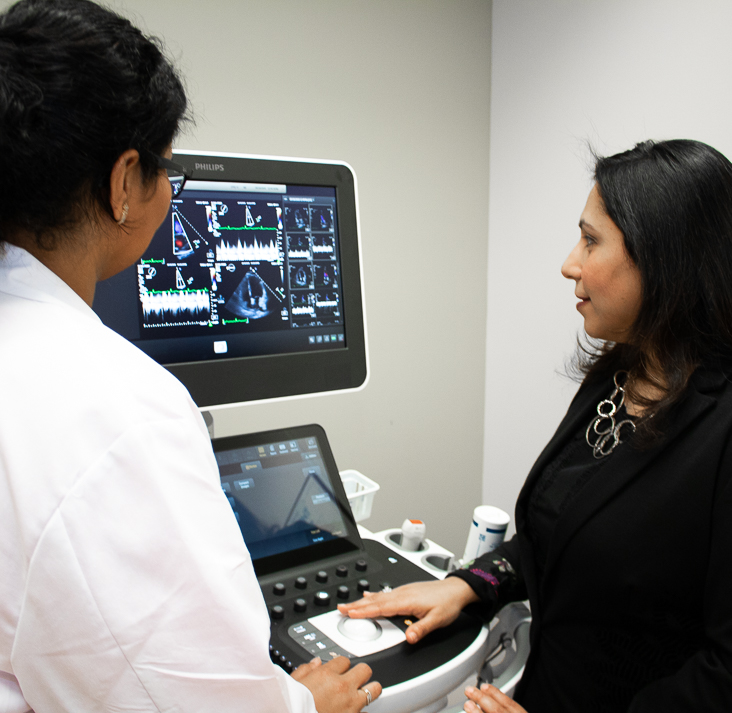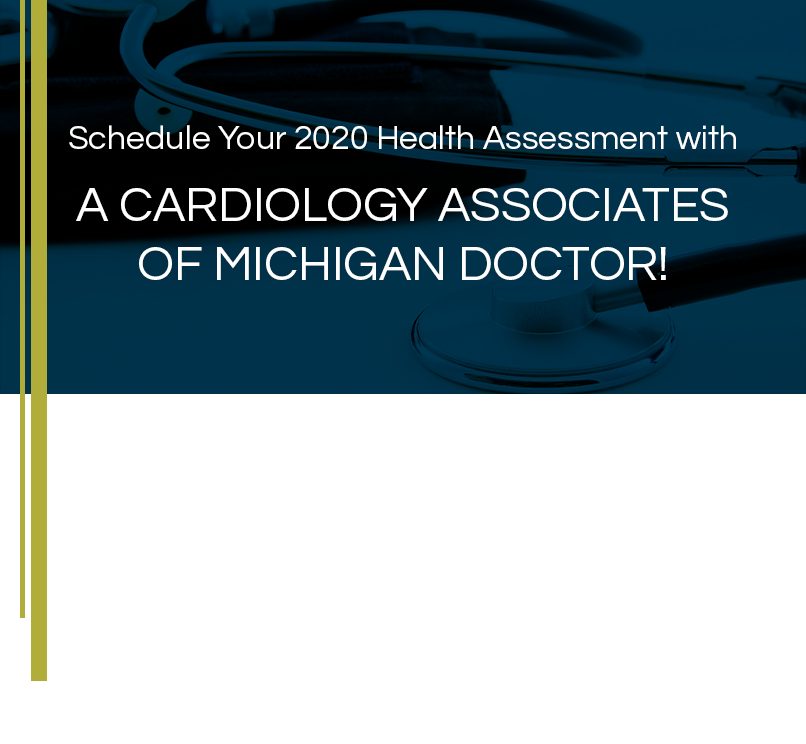
Cardiac Ultrasound
Today’s diagnostic exams allow your cardiologist to see and hear what’s going on in and around your heart, providing for the most accurate diagnoses and treatment plans. Some of our cardiac ultrasound procedures include echocardiograms, echocardiograms with agitated saline (bubble study), and transesophageal echocardiograms.
Learn more about specific health conditions and treatments below.
WHAT YOU NEED TO KNOW
An echocardiogram uses sound waves to produce images of your heart. This commonly used test allows your doctor to see your heart beating and pumping blood. Your doctor can use the images from an echocardiogram to identify heart disease.
Your doctor may suggest an echocardiogram if he or she suspects problems with the valves or chambers of your heart or if heart problems are the cause of symptoms such as shortness of breath or chest pain.
During an Echo, the addition of a bubble study gives added information, as it can identify potential blood flow issues inside your heart.
For the bubble study, you will get an intravenous (IV) line in a vein in your arm. A saltwater solution called saline is mixed with a small amount of air to create tiny bubbles and then is injected into your vein. This fluid then circulates up to the right side of your heart and shows up on the echocardiogram image.
If you have a tiny opening between your heart’s upper chambers (the right and left atria), some bubbles will move through that hole and appear on the left side of the heart. This opening is called a patent foramen ovale (PFO).
If it’s difficult to get a clear picture of your heart with a standard echocardiogram or if there is reason to see the heart and valves in more detail, your doctor may recommend a transesophageal echocardiogram.
In this procedure, a flexible tube containing a transducer is guided down your throat and into your esophagus, which connects your mouth to your stomach. From there, the transducer can be positioned to obtain more detailed images of your heart. Your throat will be numbed, and you’ll have medications to help you relax during a transesophageal echocardiogram.



